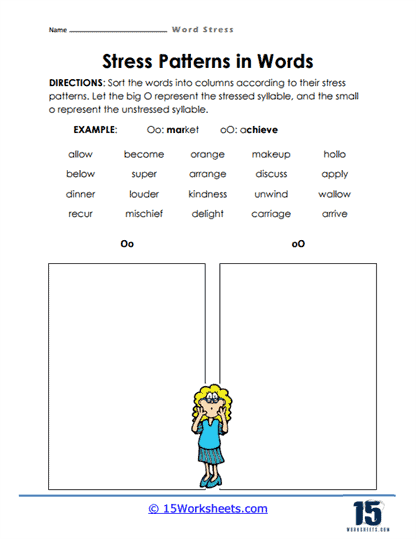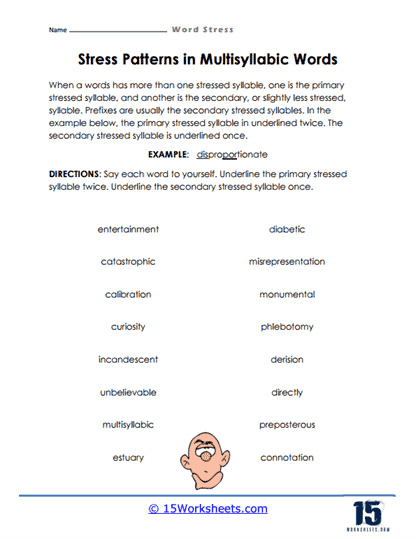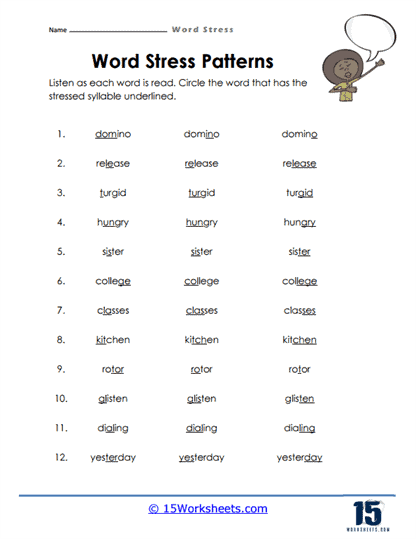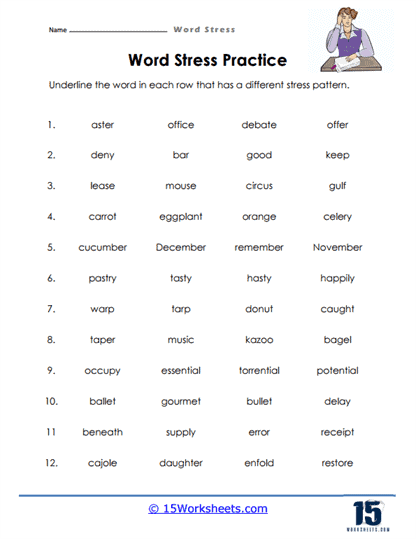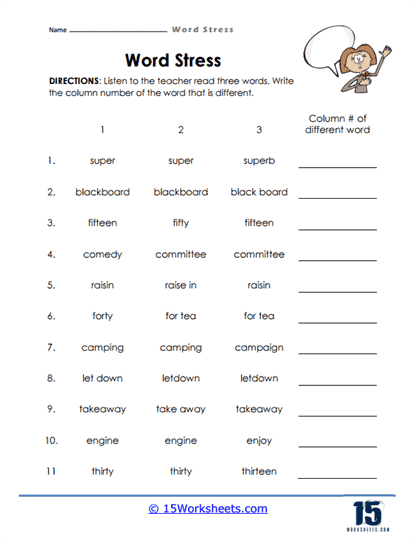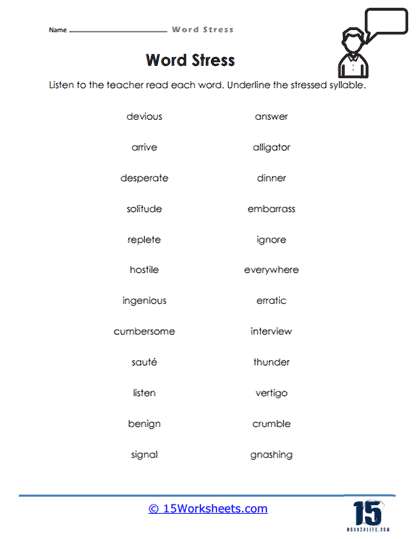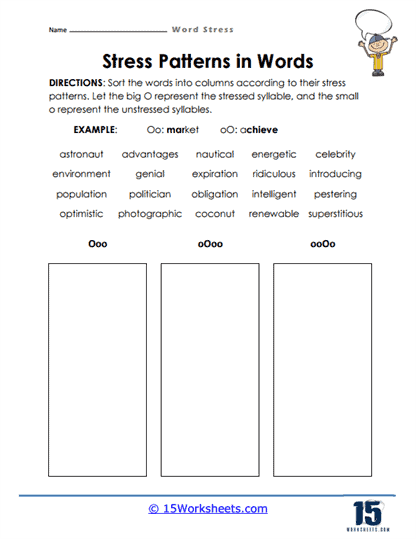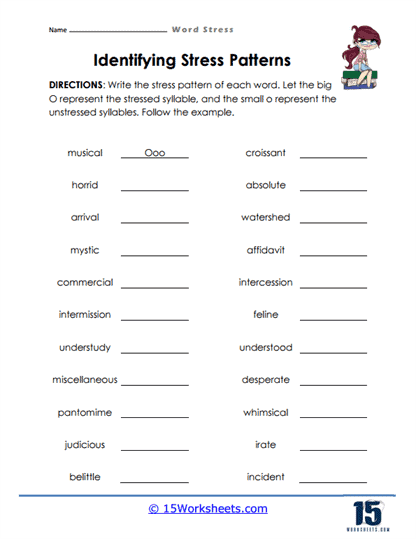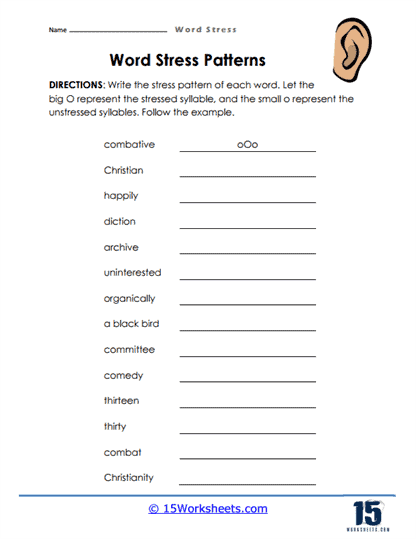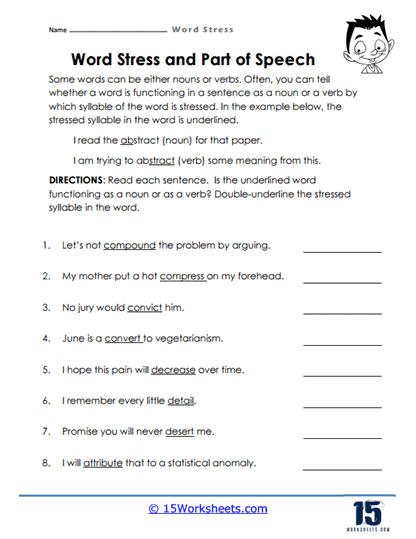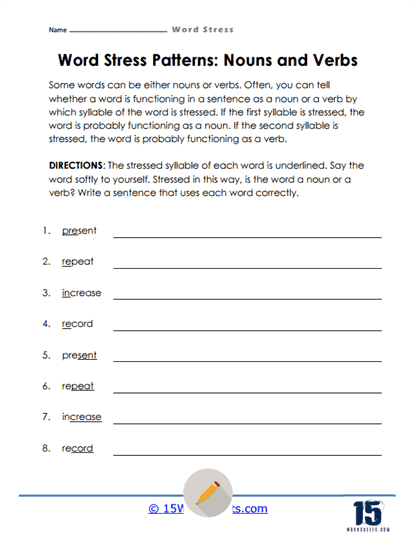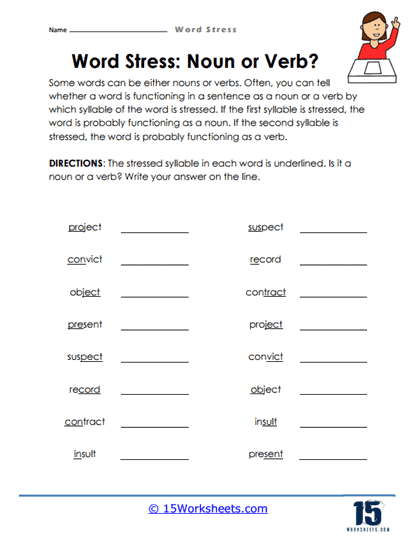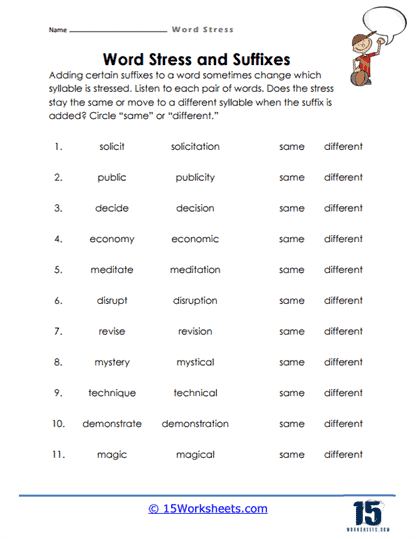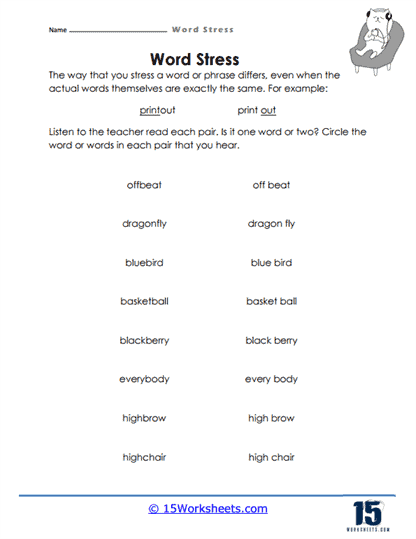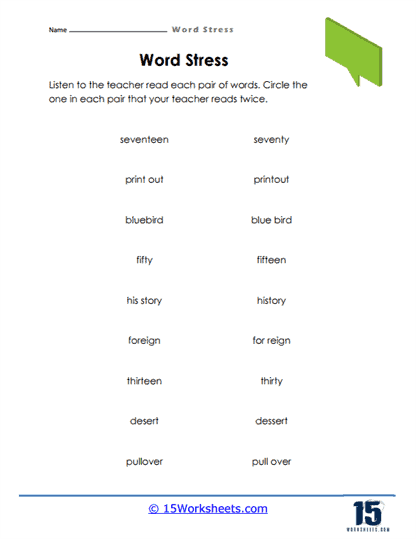Word Stress Worksheets
All About These 15 Worksheets
Students immerse themselves in the fascinating world of word stress through this series of 15 worksheets. This comprehensive collection of vocabulary worksheets is designed to help students understand and master the concept of word stress, enhancing their pronunciation skills and expanding their vocabulary repertoire.
This series offers a range of engaging worksheets that cater to students of different grade levels and language proficiency levels. Each worksheet focuses on specific vocabulary words and provides exercises and activities to guide students in identifying and applying correct word stress patterns. Through these worksheets, students will:
- Learn to identify stressed syllables and understand the impact of stress on word meaning, intonation, and communication;
- Expand their lexicon while simultaneously developing their word stress skills;
- Recognize and reproduce word stress accurately;
- Practice natural rhythm and intonation, improving their overall spoken English proficiency;
- And develop their listening skills and sharpen their ability to detect word stress in authentic spoken language, ultimately enhancing their own pronunciation.
This series of worksheets serves as a valuable resource for educators seeking to reinforce students’ pronunciation skills and develop their understanding of word stress. By engaging with these worksheets, students not only expand their vocabulary but also gain confidence in their spoken English, fostering effective communication and enhancing their overall language proficiency.
What Is Word Stress?
In English, we do not pronounce each syllable with the same power or vigor. We emphasize ONE syllable in one word. We speak one syllable loudly (large, forceful, significant) and the remaining ones gently.
The magic key to comprehending spoken English is word emphasis. Word stress comes easily to native English speakers. They don’t even realize they utilize word stress since it is so natural to them. Non-native speakers who do not use word stress when speaking English to native speakers have two issues: they have trouble understanding native speakers, especially those who talk quickly; and they may be difficult to comprehend for native speakers.
Because it impacts so many other characteristics of pronunciation, word stress, also known as lexical stress, is an essential suprasegmental trait in English.
The emphasis we give on a certain syllable of a word when speaking is known as word stress. We don’t normally pronounce every syllable with a similar emotion when it comes to speaking the English language, as in pronouncing with more than one syllable. Therefore, each syllable in a word might be stressed or unstressed.
Since a syllable that’s stressed is louder than the rest, implying that more air is expelled from our lungs; however, they may also be longer or more pronounced.
Stressed syllables are louder than the rest, implying that more air is expelled from our lungs; nevertheless, they can also be longer or spoken with a higher or lower pitch. Unstressed syllables are those that are not spoken with as much emphasis as the others. These are typically not pronounced as clearly as the others.
There may be more than one ‘strong syllable’ in certain larger words, but one stands out more as compared to others. In other words, both primary and secondary stress are the two types, with primary stress being the most severe.
Due to the relative invariability in pronunciation of words, errors in word stress can create more intelligibility issues than other types of pronunciation errors; thus, it’s critical that students understand how the word is generally pronounced. Fortunately, the same consistency makes teaching stress patterns very simple and also aids pupils in recognizing words with minimal effort.
English, on the other hand, favors alternating stressed and unstressed syllables. That is, it is uncommon for English words to have two stressed syllables in a succession, however compound terms like “housekeeper” and prefixed words like “triangle” and “nonlinear” are exceptions.
Word stress mistakes that alter the quality of a word’s usually unstressed vowel. In other words, a word stress mistake may quickly change the sound of each vowel in a word, causing serious problems for listeners.

